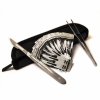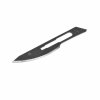We bring you an interview from the Personalities in Medicine series with a doctor and a famous musician. During his medical studies, he played on world stages in Zrcé or Ibiza, and as a medical student he participated in a humanitarian mission in Kenya.
Saxofrancis - MUDr. František Šalanda, Dis.
I am 27 years old, I come from Hradec Králové, I studied saxophone at the conservatory in Pardubice, and at the same time general medicine at the 3rd medical faculty of Charles University in Prague. I finished the conservatory in 2019, medicine a year later.
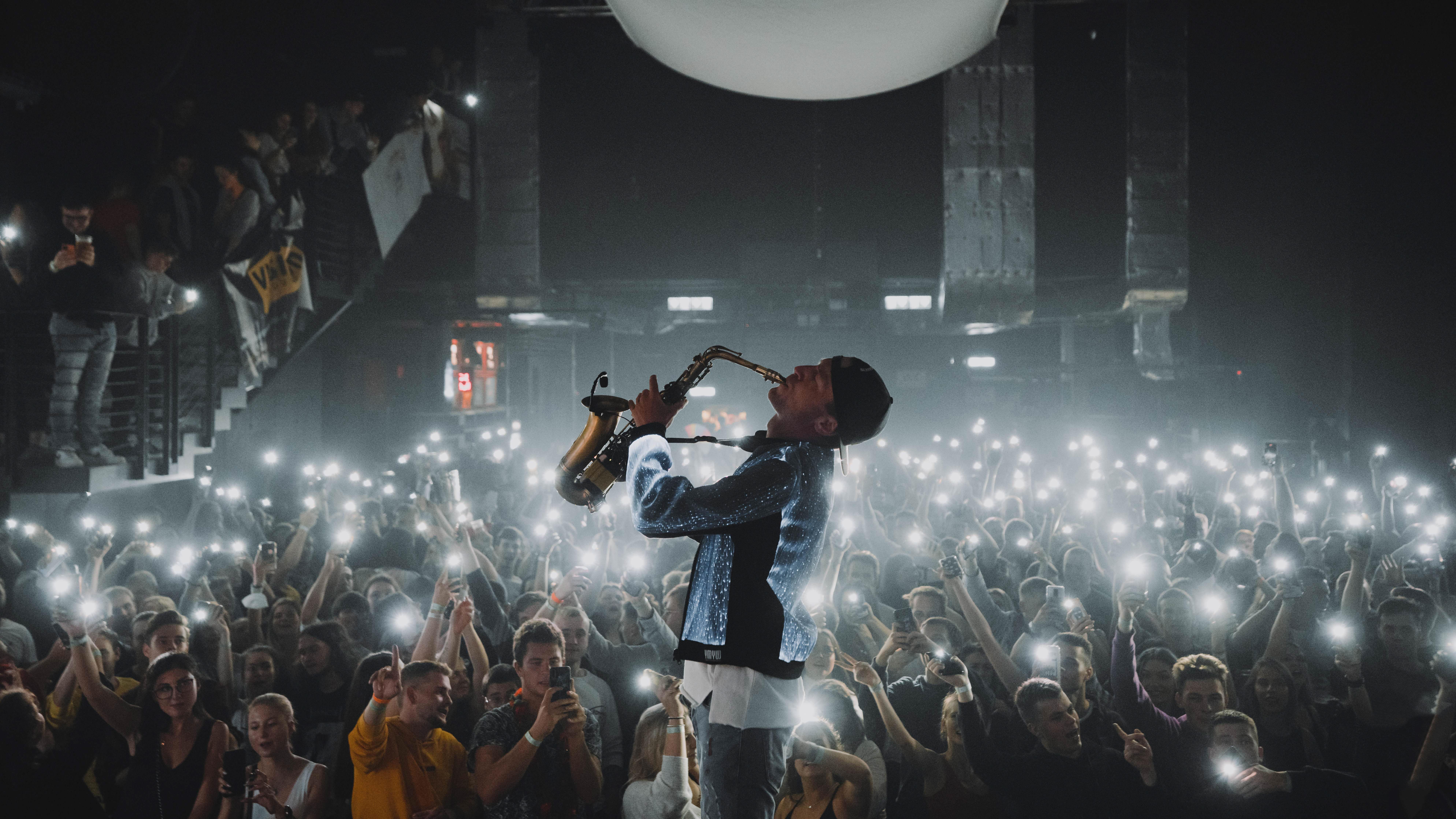
What are you doing right now?
Currently, my primary focus is music. I perform, compose and, among other things, I am now organizing my first own event.
Why did you choose music? When did you decide for one or the other? And what made you do it?
Both music and medicine are matters of the heart for me. In any case, I've been making music since I was six years old, and paradoxically, especially during my medical studies, I developed a lot within the framework of my musical solo project. After completing the demanding studies, I also needed a little rest and the time when I enjoy jumping around the stage is very limited and it is right now. I will definitely be going back to medicine anyway.
I understand, you have a position in music and you can start doing medicine anytime, right..
You can say that. I have people around me who have finished medicine, are in their thirties and are now entering the hospital, and it's totally fine. And for me, that means in four years, and I tell myself that I don't really have to rush anywhere and I can calmly schedule it a little differently than usual.
Do you have a dream field that you would like to do in the future?
Well, I have more, but psychiatry seems the most realistic. It is a field that fascinates me and at the same time offers the possibility of greater time flexibility in the future. So I believe that I could continue to devote myself to music, at least in some limited mode.
When deciding between medicine or the saxophone, were there any qualities in a doctor that you thought a saxophonist didn't have?
Certainly, you could say that it is a profession where you help people in some emergency or distress regarding their health. On the other hand, I experience a similar feeling in music, because for many people music is something like a valve and a form of relaxation. Another thing is a certain prestige and social status. To be able to do this, you have to complete a demanding and long course of study. Being a doctor and helping people is a certain privilege.
What do you consider a greater success? The fact that you are a doctor or the fact that you are a famous musician?
When you started asking, it occurred to me that I consider it a success that I managed to put it together. But if I think about it, I would say that studying medicine versus building something of your own or in my case having a music career, maybe the music career is more difficult. In medicine, it's all about diligence, but there are many more factors involved in the journey to fame in the music industry. Of course skill, diligence, talent, but also contacts, luck or competition. I see a lot of musicians and performers around me who are very skilled, but they don't manage to put all those factors together. I wouldn't say it's more of an achievement, but I'd say it's more rare.
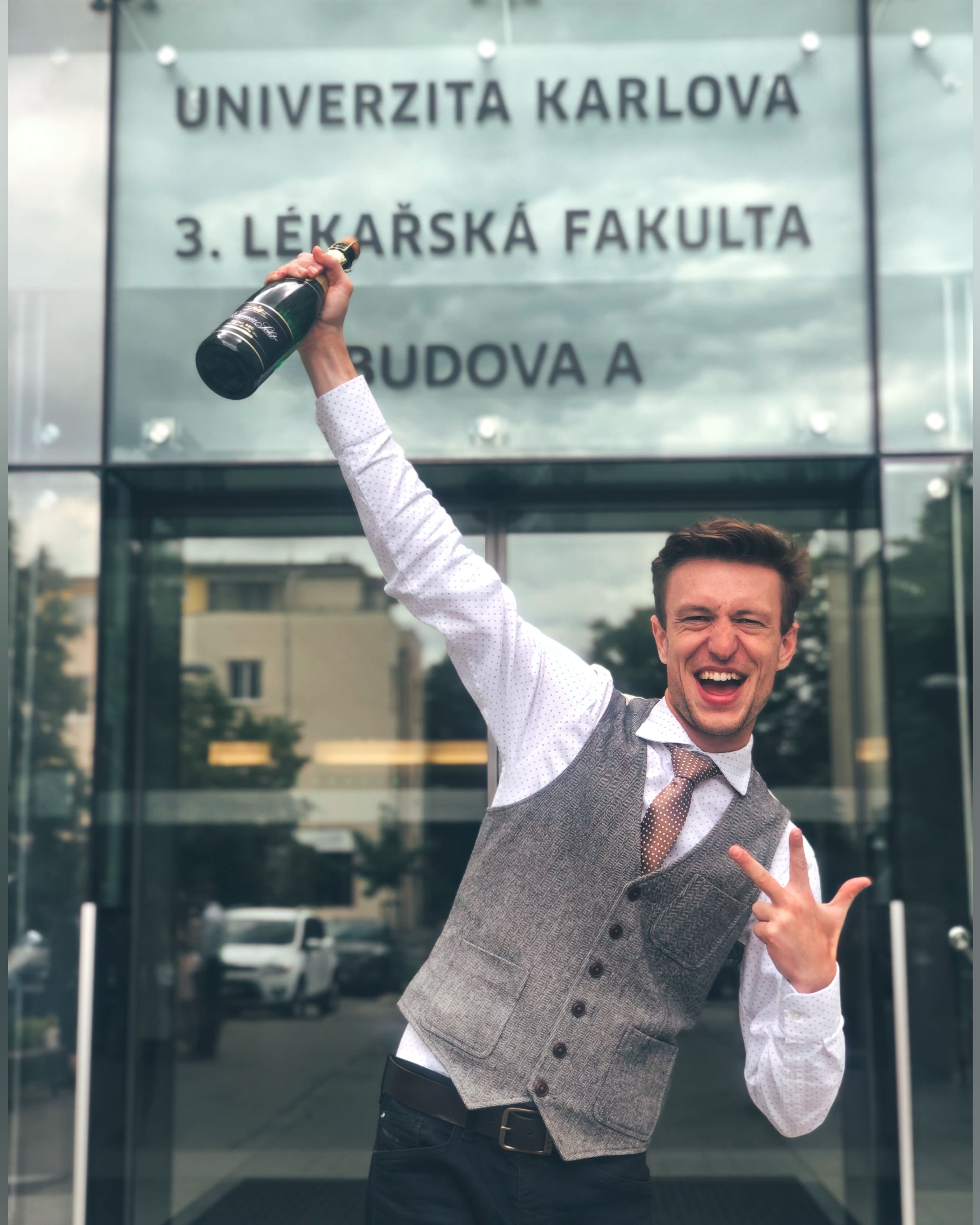
Don't you regret choosing music over medicine?
I don't regret. Mainly because I want to return to medicine and I also feel that I miss it. Medicine has become dear to my heart over the past six years, but I certainly have no regrets. Last summer alone was the craziest summer of my life. I played three times in Zrka, in Ibiza, in Split and at a lot of events in the Czech Republic, among others I played one event in Ostrava where there were over six thousand people. Unreal experience.
Surely many of our readers will be interested in how your medical studies went? Was there anything that, unlike your classmates, you had to give up because you studied at two schools?
I studied the conservatory remotely and commuted to Pardubice every Friday, so I had to alternate classes with other clubs. Fortunately, the faculty was quite accommodating in this regard, and it was not a problem to replace the intern at another time. And paradoxically, that Friday lesson at the conservatory was a great relaxation for me, because it was completely different from exact medicine. I took it more like a rest, even though I had to prepare beforehand. Anyway, it got more adventurous when I started performing more and more. It settled down to about a hundred concerts a year, which already eats up a good portion of your free time. I was playing almost every weekend, so I missed out on birthday parties, spontaneous outings with friends, and the like. That's the dark side of music again. Thank God I have great people and friends around me who did not resent me despite my busy schedule. Of course, if something is planned in advance, I always reserve that time. It is known, however, that a lot of long-term relationships were formed through college, which, for example, have now led to marriage. In short, I lived a slightly different life.
Since when have you been involved in music and why did you choose the saxophone?
At the age of six, I went to a concert by my older sister, who plays the piano. At the end, a saxophone quartet played and I was completely dismayed by it. I asked my mom what instrument it was and she said it was a saxophone. I replied that I wanted to play it. So that's how it came about, anyway, first I had to play the reed for two years, then the clarinet for four years, and only after six years I got to my dream instrument.
What are your biggest achievements in your music career?
Certainly foreign concerts – Zrće and Ibiza. Spain's Ibiza is a dream come true because relatively few performers from the Czech Republic have played there. So I consider it a huge success. In Zrka, I played in the two best clubs, Papaya and Noa. I also consider the release of my own songs to be a success. For example, the ÓČKO and several radios also put two on me. The single Back To Innocence was placed on the beautiful 5th place out of twenty in the ÓČKA music chart.
It is beautiful. And when did you start to feel that playing the saxophone could support you and be your job?
I probably don't remember the exact moment, but I know that things started to change in the third grade. I was already making regular money with it and bought my first car.
.jpg)
You were on a mission in Kenya. Why did you decide to go there and how did you get involved in humanitarian action?
It was very tempting and I wanted to give it a try. To get to know another landscape, mentality and culture. And to test how I can function in difficult conditions. I applied for the selection process three times in total, and they only took me for the third time, when I was in the fifth grade. So it pays not to give up. We went there as a group of medics and doctors to help the facility in Itibo, Kenya. There we took turns in the ambulance, surgical service, gynecology and obstetrics service, vaccinations, housework and night service.
That was actually at a time when you were already playing at your peak, didn't it limit your performance or your career?
It was limited, but I knew it in advance, so I simply did not accept bookings for this period.
Was there anything you were really afraid of before leaving? Something that happens there?
Paradoxically, I wasn't at all afraid of any risks associated with traveling to Kenya, but rather I was afraid that I would somehow fail medically there or that I would simply not be enough. This was probably my only fear, but it ended up being fine. In difficult situations, there was always someone to consult, either from our team or from local staff.
What were the first days in Kenya like?
So those first days were the most demanding, because we got used to everything there. I thought I had no chance of making it, not mentally, but rather physically. We didn't have a completely screwed up service rotation from the beginning and we were kind of working non-stop. Fortunately, after a few days it settled down and it was calmer.
Did you have the opportunity to go on any trips and such?
Definitely. We went to see, for example, a tea factory, Lake Victoria or a Masai Mara safari.
And what spectrum of patients was in that clinic?
Most often, various skin diseases, as well as respiratory or infectious diseases. We also dealt with machete injuries, for example, or biting part of the face. That was then on the surgical service.
How big of a difference is it for a medic to be in a hospital here and in Kenya?
As far as equipment is concerned, paradoxically, there wasn't that much of a difference. Over the years, the facility there has been very well equipped and even has an ICU. But the language barrier was definitely a problem, communication was often in the style of pain/no pain, taking the medical history was sometimes really difficult. Another difference was that I did everything there myself. And that includes sterilizing instruments or performing tests for malaria and the like.
What about the administration?
We did it here too, but it was much simpler than ours. Everything is written there manually in the patient book.
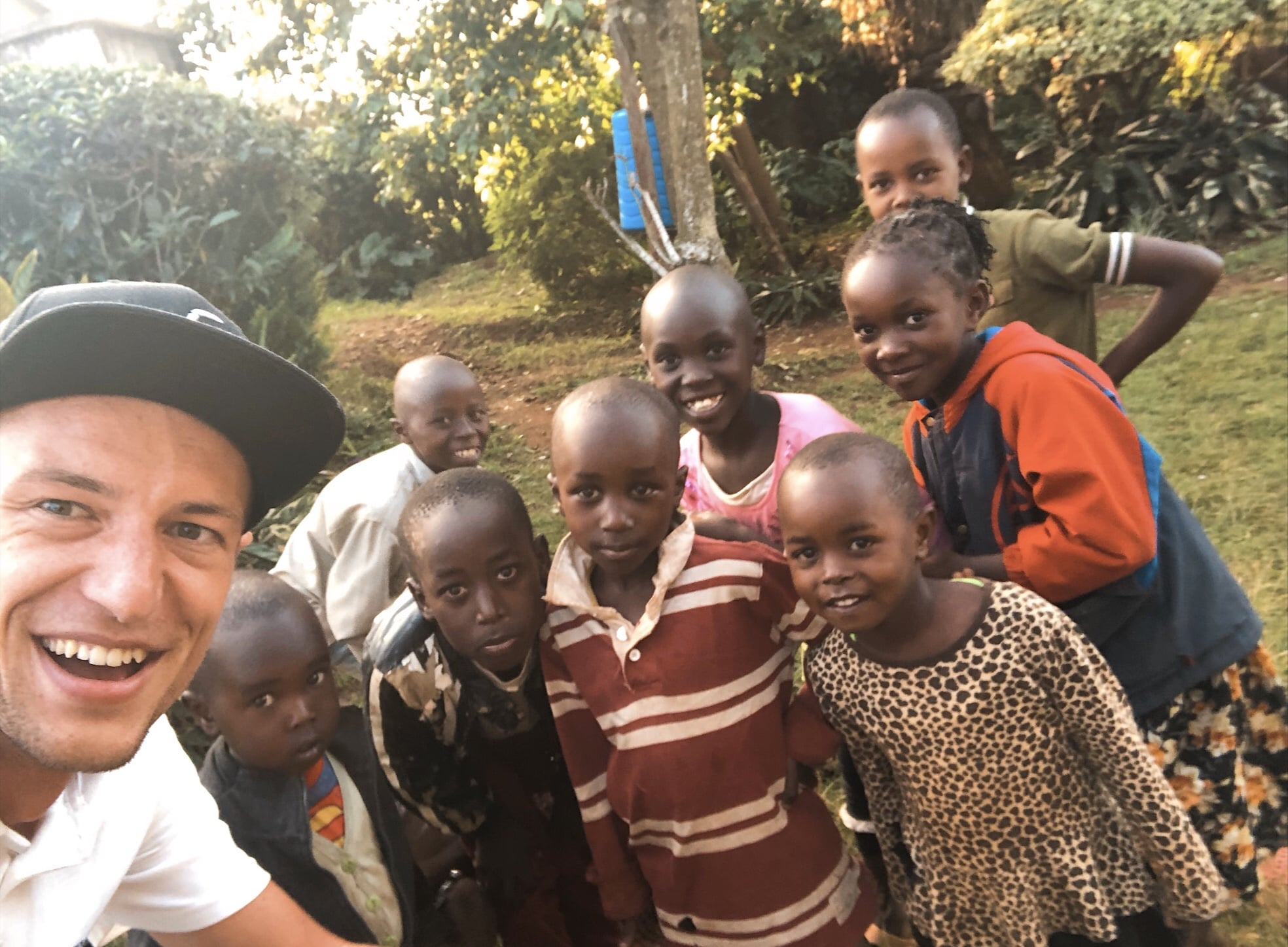
What is your greatest medical experience in Kenya?
Definitely the birth I had on duty at about five in the morning. She was a seventeen-year-old girl, a first-time mother, with the fact that it was actually the first birth I had led. Anyway, Joseph from the local staff was there with me and he helped me a lot with everything.
Have you been in a situation that was so traumatic that you later said you should have stayed home?
Well, there were moments, not that I actually found myself in a situation, but that I suddenly realized that it's not really fun. On the one hand, for example, when we saw the injuries that ended up here, including some conflicts between locals. And also from some of the stories that the locals told us. Whenever we traveled alone, we followed certain rules (for example, don't go anywhere after dark), thanks to which we didn't get into any dramatic situations.
Another thing was that I didn't deal with such malaria at all when I went there. Of course, we used antimalarials as a prophylaxis, but it was only then that I realized that when you have an attack, as a result, it somehow weighs on you afterwards. The leader of our expedition had malaria twice and said that for half a year afterwards he was so bradypsychic. That's what I said to myself, I can't imagine that I wouldn't be able to function for half a year after that. And suddenly it starts to weigh on you a little. After that month, I was looking forward to being able to walk normally at home in the evening, just like that. Anyway, Kenya is a beautiful country and if you're careful, you're fine, and they work out their conflicts with each other there. As a white person, they usually treat you with respect.
What advice would you give to our readers for study or employment? From your point of view, a person who also does something else.
Of course, if they have a hobby or a hobby that relaxes them, they should definitely not give it up, because I think that's what helps you keep a healthy distance when studying medicine or practicing medicine, so that you don't go crazy...I think it's important to have something you can kind of escape to and regenerate.
Thank you very much for the interview.
The interview was prepared for you by Filip and Jana.

